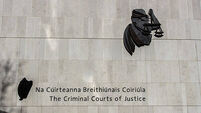Counting begins in general election after tight exit poll
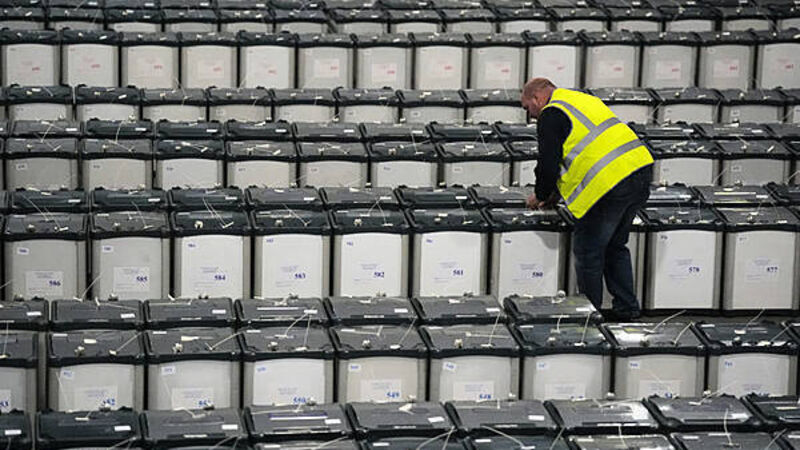
By Cillian Sherlock, PA
The protracted process of counting votes in the general election began on Saturday morning as an exit poll put the three main parties virtually neck and neck.
Sinn Fein held 21.1 per cent of first-preference votes, narrowly ahead of current coalition partners Fine Gael and Fianna Fail at 21 per cent and 19.5 per cent respectively, according to the Ipsos B&A Exit Poll commissioned by RTÉ, The Irish Times, TG4 and Trinity College Dublin.
It puts the two largest parties in the current coalition, Fine Gael and Fianna Fáil, on a combined 40.5 per cent.
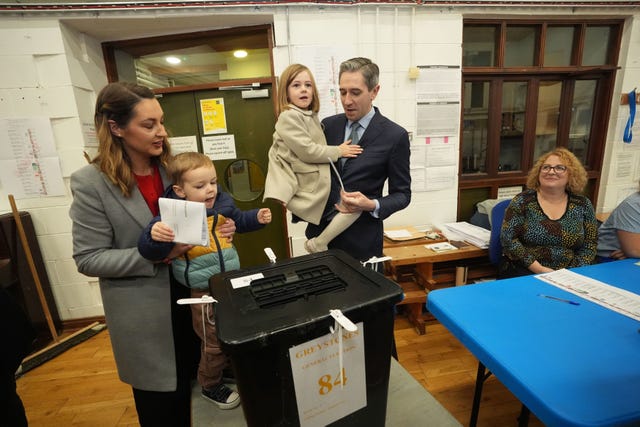
Counting started at 9am and could last days due to Ireland’s complex system of proportional representation with a single transferable vote (PR-STV), where candidates are ranked by preference.
It means the voting slips need to be counted several times – an undertaking which can last days.
The final results will immediately kick-start government formation speculation – amid the suggestion of the exit poll that more than three parties may be needed to form a majority.
While the exit poll is indicative of the support base for the political parties, the final results will be determined by transfer votes – a key part of PR-STV.
The exit poll’s examination of voters’ second preferences put Fianna Fáil and Fine Gael at 20 per cent each, with Sinn Fein at 17 per cent.
The inconclusive results mean that all eyes will now turn to the potential search for coalition partners.
Elsewhere, the exit poll showed: Social Democrats (5.8 per cent), Labour (5 per cent), Greens (4 per cent), Aontú (3.6 per cent), People Before Profit-Solidarity (3.1 per cent), and Independent Ireland (2.2 per cent). Independents and other candidates were on 14.6 per cent.
There is a margin of error of 1.4 per cent.
Matt Carthy, Sinn Féin’s director of elections, hailed his party’s “phenomenal” performance as a significant turnaround from the party’s disappointing showing in June’s local and European elections.
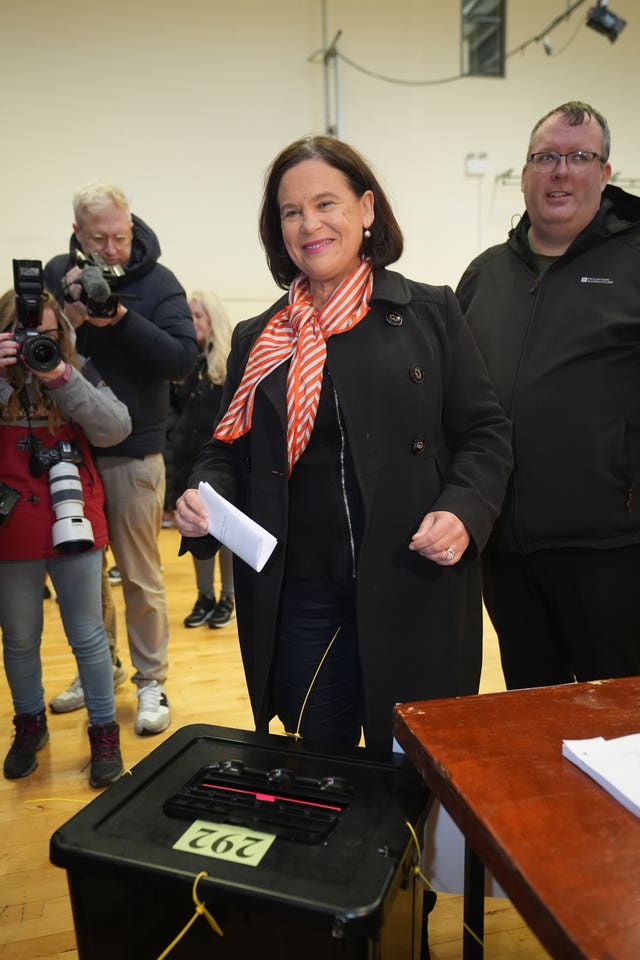
While refusing to be drawn on potential government formation, Mr Carthy said previous exit polls understated Sinn Féin’s performance by more than 2 per cent.
Fianna Fáil deputy leader Jack Chambers cautioned that the “three-way race” was within the margin of error of 1.4 per cent.
Mr Chambers told RTÉ News: “We’re clearly in the mix with the other two parties.”
On the same broadcast, Fine Gael representative Damien English said the result was a “very solid performance” and predicted the party will return 37-38 seats.
Eighteen of the party’s 35 incumbents are not contesting the general election, with incumbency historically considered an important factor in Irish politics.
The results of the exit poll suggest the arithmetic to form a majority may prove tricky, with the country’s several smaller parties and many independents potentially jockeying for a place in government – possibly in a coalition made up of four parties.
The leaders of Fianna Fáil and Fine Gael have consistently ruled out entering into a future coalition with Sinn Féin, citing substantial differences on policy.
Mr Chambers said “nothing has changed” in regard to Fianna Féil’s position of ruling out a coalition with Sinn Féin.
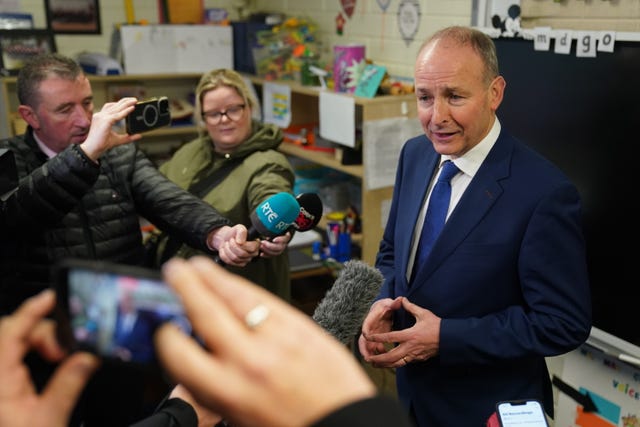
Mr English said it was too early for government formation talks but noted that Sinn Féin’s figures are “well down” from highs of more than 30 per cent seen previously.
As such, Sinn Féin faces a much more challenging route to forming a government.
However, long-held and seemingly insurmountable political differences have eroded as recently as 2020 when the general election also delivered an inconclusive result.
It was in that instance that Fine Gael and Fianna Fáil, two parties forged from opposing sides of Ireland’s Civil War of the 1920s, agreed to set aside almost a century of animosity and share power for the outgoing coalition – after similar pledges against forming coalitions had been made prior to the final results.
The Greens joined the coalition as a junior partner.
In that election, Sinn Féin won the popular vote but a failure to run enough candidates meant it did not secure sufficient seats in the Dáil to give it a realistic chance of forming a government.
This time around, party leader Mary Lou McDonald fielded many more candidates in a vow not to repeat past mistakes, as she urged voters to elect a government of change without Fine Gael or Fianna Fáil.
There are a total of 174 seats in the country’s parliament to be filled – more than ever before.
As the Ceann Comhairle – the speaker of the house – is automatically returned, 173 seats will be filled in the counting process.
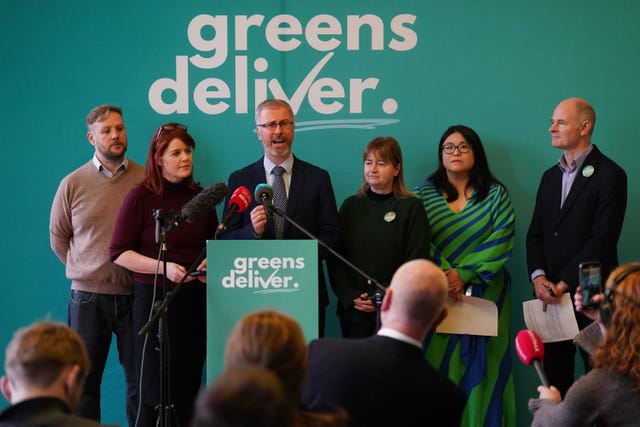
More than 3.6 million people were registered to vote in the election to pick their representatives across 43 constituencies, in a campaign that has focused on the country’s housing crisis, the response to a dramatic increase in immigration, and economic management for the cost of living as well as potential future trade shocks.
Prior to the exit poll, Green Party leader Roderic O’Gorman said his government partners will be looking for an “easier life” in a future government, and warned that this could result in “right-wing independents” or “small populist parties” padding out the numbers.



